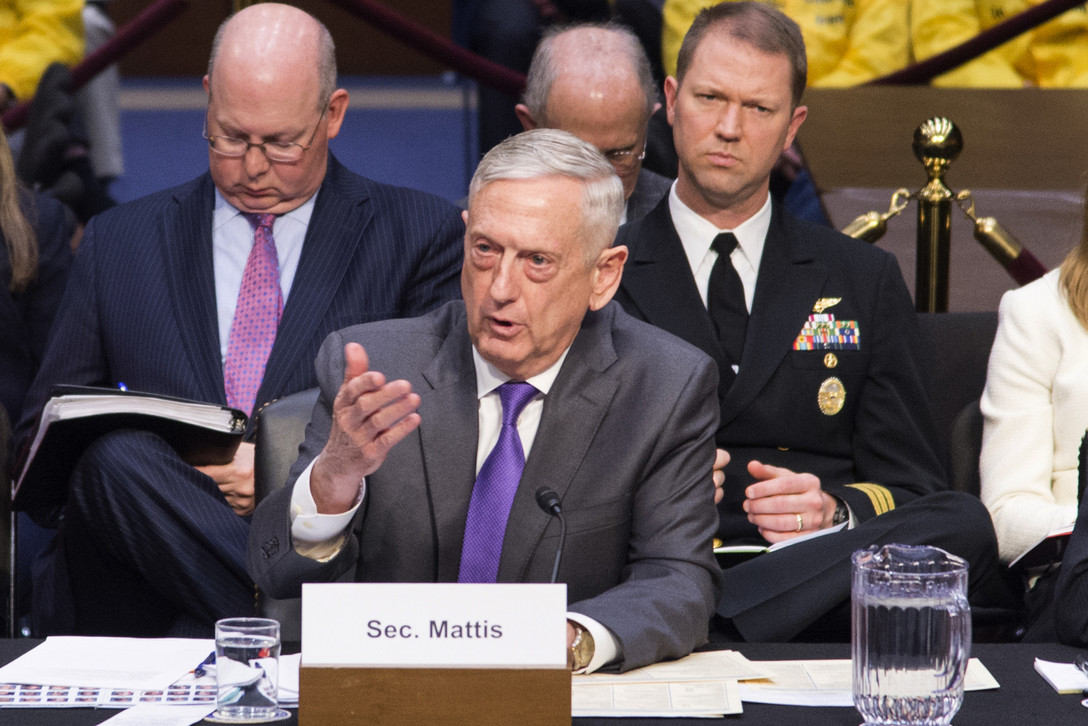Defense Secretary Jim Mattis testifies Thursday at a Senate Armed Services Committee hearing on Defense Department posture and the Fiscal 2019 budget. Defense Department photo by Navy Petty Officer 1st Class Dominique Pineiro.
The recently signed budget deal and its sizeable increase in funding for the Pentagon gives the military a chance to increase its modernization in critical areas, but more steady funding in the years ahead will be required to stay ahead of adversaries, Defense Secretary Jim Mattis said Thursday.
“We have future capabilities we must develop now if we’re going to carry out our responsibilities,” Mattis said at a Senate Armed Services Committee hearing, explaining that there are dangers “we can see growing” so the Pentagon has to maintain itself “on the cutting edge” of technology.
This includes the development of hypersonic weapons and improving the nuclear weapons portfolio to keep it a steady deterrent.
The budget deal gives the Pentagon $654.6 billion, an increase from the $639 billion in the initial budget request, putting the military on the right trajectory. However, Mattis said, “Our work has just begun.”
“The nation must field sufficient capable forces to deter conflict, and if deterrence fails, we must win,” Mattis said. “Following this logic, we must maintain a credible nuclear deterrent so these weapons are never used and a decisive conventional force that includes irregular warfare capability.”
In this vein, the Pentagon earlier this year released a new Nuclear Posture Review, which, among other steps, called for the creation of a new low-yield, submarine-launched cruise missile along with modernizing the overall nuclear infrastructure. Mattis said these steps are part of bringing Russia back into compliance with the Intermediate-Range Nuclear Forces Treaty.
The steps called for in the review look “to put Russia in a position to see a benefit to themselves” to return to compliance, he said. Modernizing the deterrent will help diplomats both with discussions with Russia and for non-proliferation talks globally. “
When nations don’t live up to treaties, treaties are not sustainable,” Mattis said. “We would have to deal with that.”
